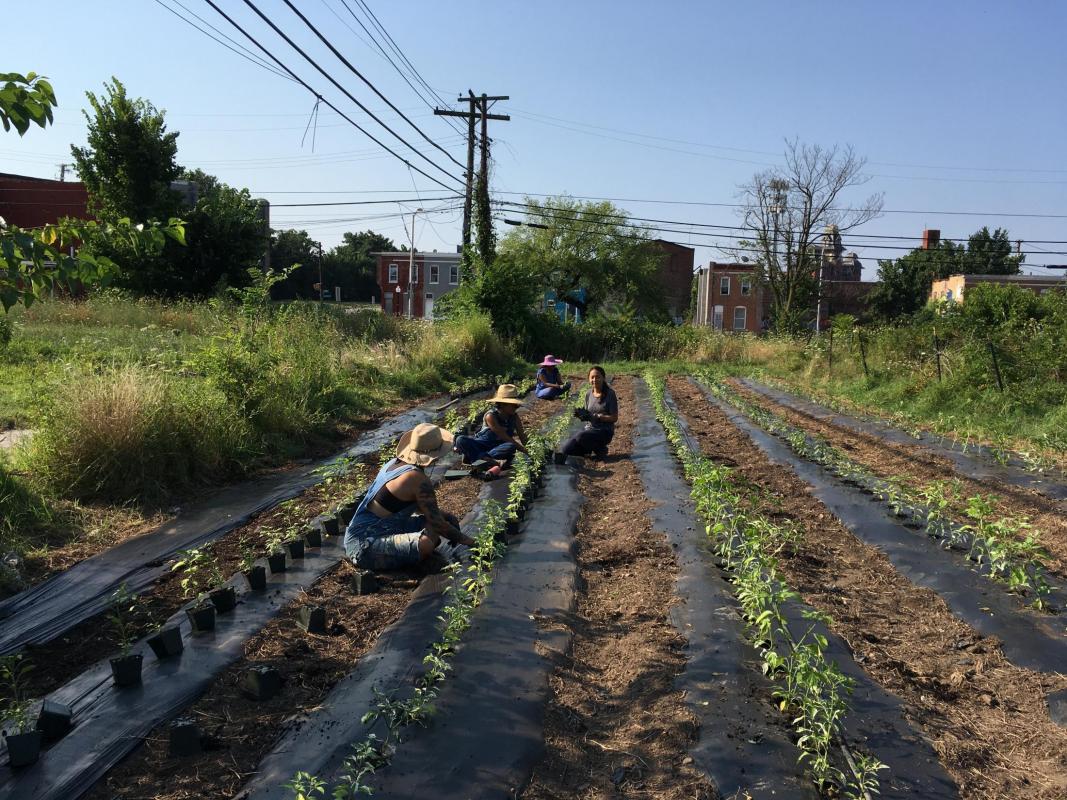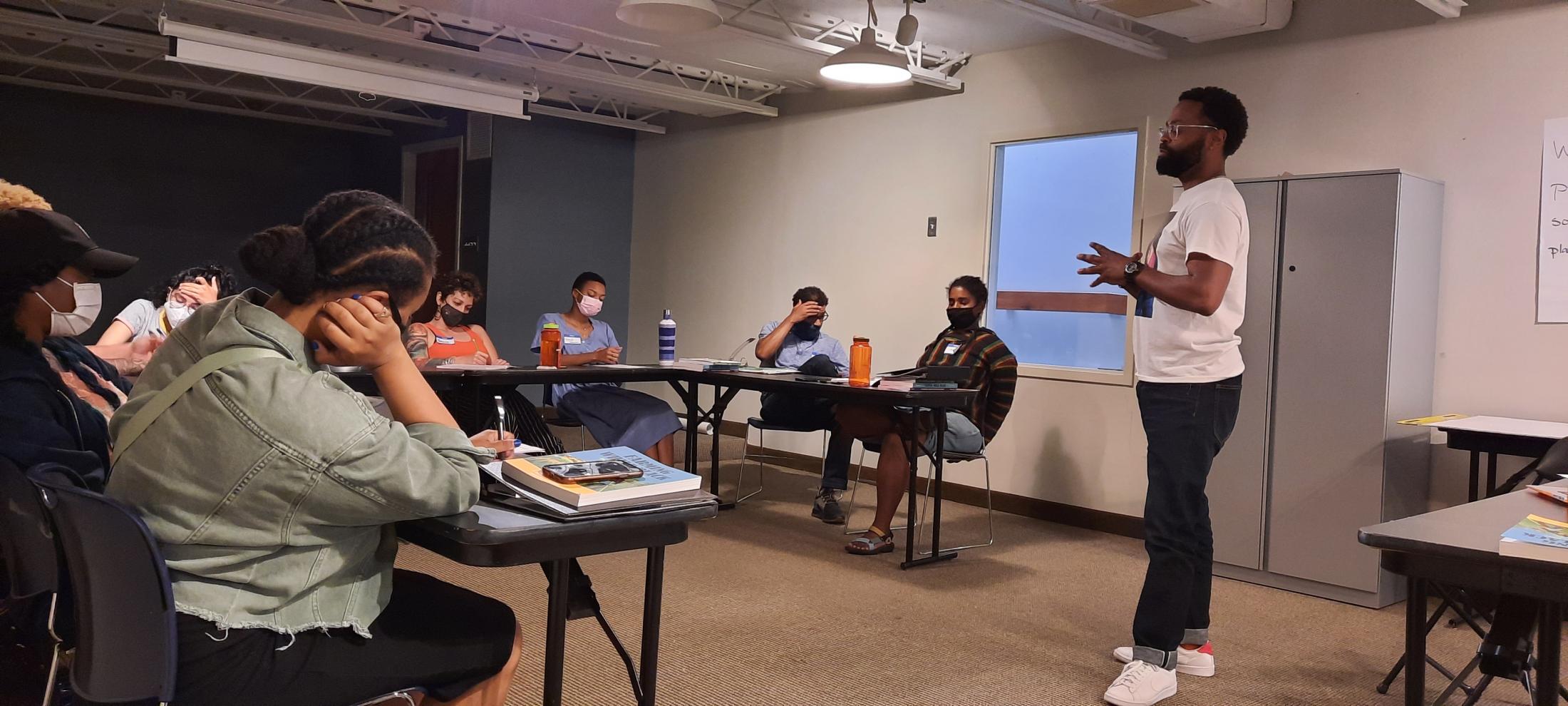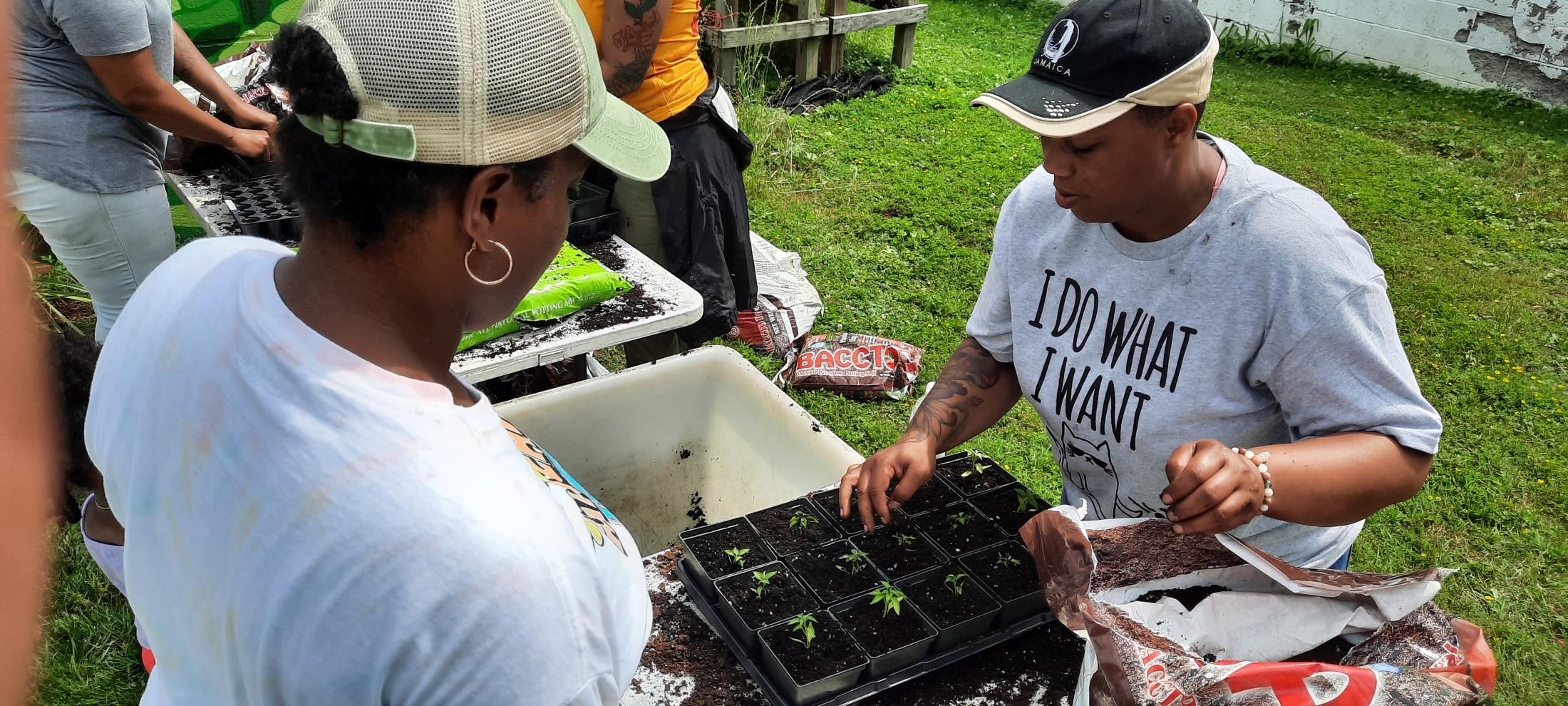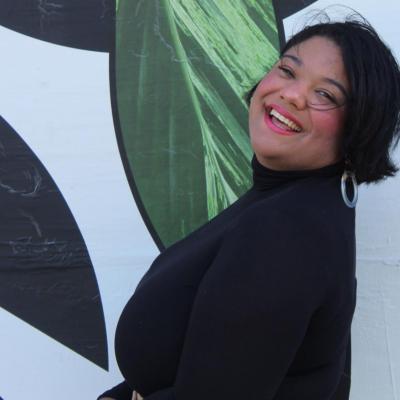
Last year, former Morgan State University professor Dr. Lawrence T. Brown published The Black Butterfly: The Harmful Politics of Race and Space in America. The urban Afrofuturist’s first book–which takes an up-close and unflinching look at segregated Baltimore–empowers city leaders to achieve racial equity through healing and rejuvenating Black redlined neighborhoods, which branch out from the better-funded center of Charm City like a butterfly’s wings.
Inspired by Brown’s work, it was around this time that Farm Alliance of Baltimore, a membership collective of urban farms and growers, debuted The Black Butterfly Urban Farmer Academy. The eight-month training program, which is currently accepting 10 new members (those interested are asked to apply by Feb. 11) teaches urban farming skills to Black and Brown Baltimoreans—particularly those who come from disadvantaged neighborhoods. To learn more about the program, we caught up with Denzel Mitchell Jr., the Farm Alliance’s co-executive director and principal investigator of the new initiative.
What inspired you to create this program?
We wanted to create an opportunity for folks to farm using organic, sustainable, and regenerative practices, but right here in Baltimore City. There are training programs that are available throughout the country to teach people how to farm, but we wanted one that was accessible to folks who live and work in far east and far west Baltimore, where there’s not a lot of opportunities for agricultural development.
The program is accepting 10 trainees. What will they learn throughout the process?
They’ll learn basic growing techniques, irrigation techniques, and food safety techniques. They’ll learn post-harvest handling and harvesting techniques. They’ll learn about small grain and flour production. They’ll learn all the different types of marketing—small scale, diversified, and agricultural. They’ll learn business management, community engagement, and financial planning. They’ll get an opportunity to work on the land and learn specific cultivation practices for a variety of vegetables and grains. They’ll also get introduced to composting—specifically community composting. They’ll learn about soil health and beekeeping, and be introduced to a network of seasoned growers.
They’ll also read two books. Leah Penniman’s Farming While Black is our seminal text. We just try to touch on all the basics, and then provide an opportunity for folks to work at a farm so that they learn what the week-in week-out flow of working on a farm is—especially as it relates to the season.
“You know, we like to say ‘get in where you fit in.’ You don’t necessarily have to be a farmer. But if you eat, you need to love a farmer.”
Where will they work?
We’re developing a farm in [South Baltimore’s] Farring-Baybrook Park, where trainees will come and work. Our farm education and production manager Myeasha Taylor, and our production assistant, Andy Szentendrei, will work with them weekly on four different production models. But then there’s also a number of field days, which are essentially field trips for farmers, where the trainees will travel to other farms in the city—as well as farms in Baltimore County, Prince George’s County, and Washington, D.C.—and get to see what a successful, longstanding urban farm looks like.

In addition to agricultural skills, you’re incorporating spiritual and cultural elements into the program. There’s also the chance to learn marketing and branding, so it’s not just farming. Does this set Black Butterfly apart from other similar programs?
I would hope so. There’s an elder named Baba Oduno in Washington, D.C. He’s one of the first people I met when I moved there. And one of his mantras is that “there is no culture without agriculture.” For many Black, Brown, and Indigenous people, farming and food production has been a part of our entire existence. You can’t really separate eating from production. In our current state of understanding, and with the way the market has been created in Baltimore, and throughout the country, a lot of people are separated from food production. We don’t remember that “somebody grew this carrot that’s now in my salad” or that somebody had to plant the seed and water this corn stalk, and then wait for the ear of corn to be ripe, and then harvest it, and then package it and bring it to the farmers market or the grocery store.
We’ve kind of lost our way. And one of the seminal aspects of our program is to really re-centralize that and to help folks understand that food production is a part of life, that when you sit down to eat, somebody sacrificed their labor and their energy in order for you to be fed. You know, we like to say “get in where you fit in.” You don’t necessarily have to be a farmer. But if you eat, you need to love a farmer.
With an enduring lack of diversity in farming, a lot of Black and Brown people might not take an interest in it. Why should they?
That is 100 percent true. Obviously, we have a very storied and traumatic past with farming. That goes without saying. There’s definitely a lot more to learn and understand about the value of food production, and then more importantly, our relationship to it. There’s a lot to revel in. [Black people] are a part of the American fabric because we were so instrumental in farming. We have been, and always will be, the foundation of agricultural production in this country. A lot of it is just kind of being reintroduced to that history, and holding it with pride as opposed to with shame.
I’ve been around long enough to know that a lot of folks connect [farming] directly to slavery, not really thinking about how important that skill set and expertise is to every aspect of life. It’s hard work. But it’s not slave work. It’s highly, highly skilled work. You can’t walk out onto a piece of ground with a pack of seeds in your hand and expect to be able to produce food. There’s a knowledge base you have to employ in order to understand that kind of production. It is a skill and a profession that needs to be respected. The American work paradigm has largely been disrespectful to farming in general. Because of institutional racism and discrimination, and all the rest—you know, land stealing—Black farmers have been pushed out of the conversation. That’s one of the things that we’re trying to change.
“You can’t walk out onto a piece of ground with a pack of seeds in your hand and expect to be able to produce food.”
Why is it important to have more Black farmers in Baltimore?
It’s important to have more Black farmers in the country. All the numbers show that Black farmers are aging out. There’s less and less access to land for young Black and Brown people to be able to jump into that career choice. We really wanted to create a pathway for folks to get trained to be able to learn how to produce food at a production scale for the market. Specifically in Baltimore City, there’s tons of vacant land that is being underutilized. We particularly saw this [program] as an opportunity for folks to learn a new skill set and create an enterprise out of it.

What would an ideal Baltimore look like under the program’s influence?
Much, much more of our greenspace would be utilized for production, whether it be grains produce, bees, chicken, goats. And there would be a lot less blight in the city. Right now, what we have is vacant land around the city—massive amounts of vacant land that’s being used for neither residential nor production space, which just kind of attracts blight and vagrancy and litter. An ideal Baltimore would mean more production, more people who are excited about farming, and more people who are willing to take the time and steps to start growing. We have got to kill the narrative that big agriculture is responsible for feeding everybody. It is your responsibility to feed yourself, your community, your family, and the people that you love. I personally would like to see people eating more seasonally. I would like to see us shunning the notion that we should be able to have cantaloupe in Maryland in December, or strawberries in January, or asparagus in November.
“We have got to kill the narrative that big agriculture is responsible for feeding everybody. It is your responsibility to feed yourself, your community, your family, and the people that you love.”
Any advice for people who are interested in joining?
Obviously they should apply. Applications are open until Feb. 11. Unfortunately, we only have 10 spots. However, I will say that if you are interested in farming, there’s lots and lots of resources to get you introduced. One of the easiest ways is to go to the library or your local bookstore and buy books and read about it. There’s tons of YouTube videos. And as a part of our program, we offer field days that are open to the public for a small fee. When the program starts, we’ll host field days all over, where you can come in and hear people talk about their farming experience and share their expertise.
